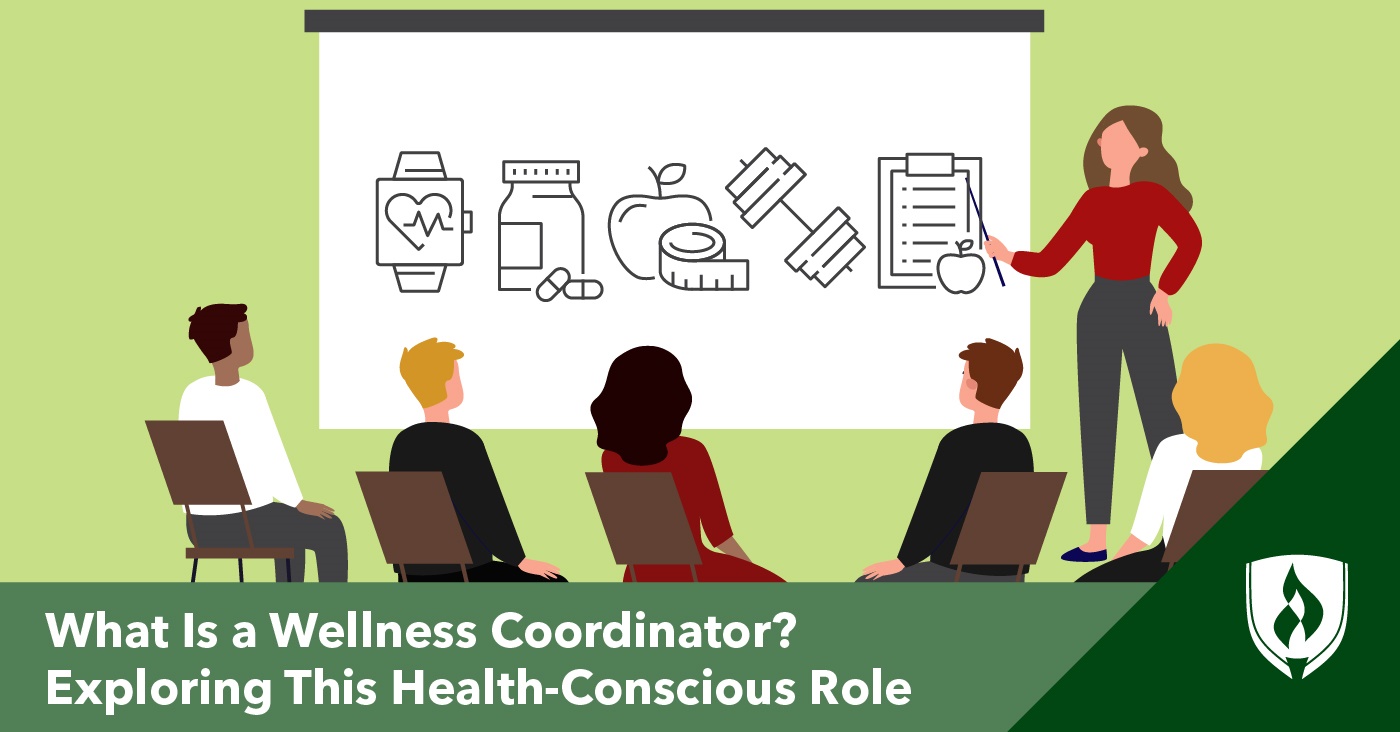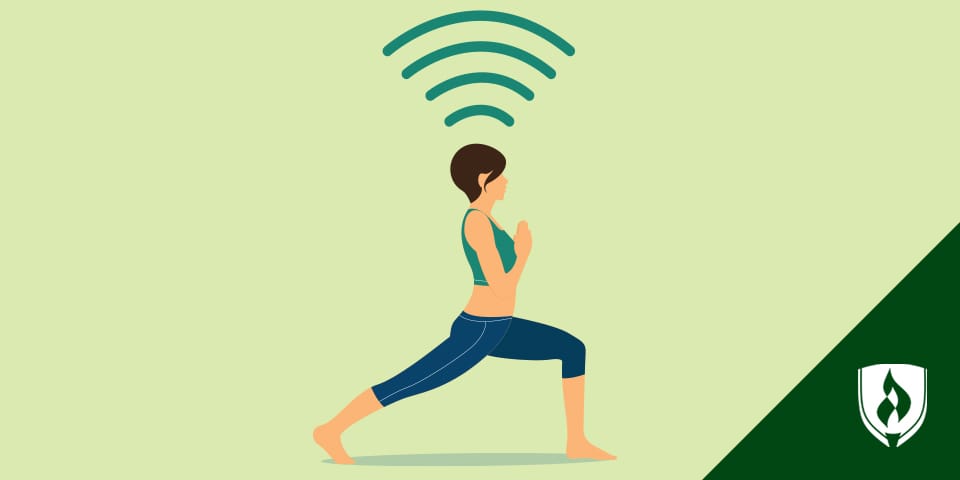What Is a Wellness Coordinator? Exploring This Health-Conscious Role
By Carrie Mesrobian on 02/07/2022

In today’s competitive job market, organizations are always looking for ways to attract and retain employees. In addition to healthcare benefits, paid time off and retirement fund contributions, many companies are adding wellness programs as another offering that prospective employees might find appealing. Wellness programs also can help organizations promote healthy lifestyles, which can save money when it comes to lost work time due to illness and disease.
But these programs don’t run themselves. They often require the oversight of a wellness coordinator, a person with expertise in communicating and managing wellness initiatives so that they’re understandable, accessible and timely. Never heard of a wellness coordinator? That’s not entirely surprising, as this role is relatively new—at least to the corporate world. Read on for a look at this up-and-coming job.
What is a wellness coordinator?
The label “wellness coordinator” may be new, but the job is essentially a type of community health educator—an occupation that’s been a long-standing part in the field of public health. In a nutshell, wellness coordinators are the point person for programs designed to improve health outcomes. They use a combination of public health knowledge and organizational skills to identify needs within a population and develop plans for how to best address them.
What do wellness coordinators do?
While the specifics of this role can vary substantially between employers, generally wellness coordinators manage programs, services and special events for organizations that want to promote better health outcomes. These offerings are usually tailored to the needs of an organization and customized to best fit that population. Wellness coordinators may supervise a range of health initiatives, from seasonal flu vaccine rollouts to onsite fitness classes.
Wellness coordinators often serve as in-house educators on a variety of topics, like nutrition and exercise, and may also run smoking cessation programs, health risk assessment campaigns or first-aid trainings. Of course, they can also turn to external partners and groups to help facilitate these efforts—like partnering with a local healthcare provider when organizing an influenza vaccination drive or arranging for guest presentations by registered dietitians.
Additionally, wellness coordinators are often responsible for measuring and assessing the effectiveness of their programs. That can entail creating surveys for gathering feedback and then using that information to adjust offerings.
As many organizations now offer onsite healthcare and exercise facilities, wellness coordinators may also manage those contracts and relationships as well as promote any of their features and initiatives. Wellness coordinators will also evaluate new services and products that appear on the market to determine if they’re a good fit for their organization’s needs—for example, subscription mindfulness or fitness tracking apps.
Where do wellness coordinators work?
Wellness coordinators work for private companies, government offices, schools, colleges and universities, healthcare organizations and residential care facilities. Any organization that wants to extend opportunities for employees (or residents) to monitor, maintain and enhance their overall health might hire wellness coordinators.
There are also many new wellness-based companies that offer program packages to organizations that don’t have capacity for this role. Some specialize in particular types of programs, like meditation apps, ergonomic workstations and healthy catering options. These organizations may also hire wellness coordinators to manage these accounts.
Beyond working in a corporate office, it’s fairly common to see wellness coordinators working for residential care facilities. While their overall goal of promoting healthy habits and lifestyles will remain, the initiatives are geared toward residents. For example, leading group fitness classes or developing mobility-focused exercise routines for elderly residents.
What does it take to become a wellness coordinator?
There’s no set-in-stone path for becoming a wellness coordinator—in part because the responsibilities associated with this job title can vary substantially from employer to employer. That said, wellness coordinators working in a corporate environment will likely need a strong educational foundation. A Health and Wellness degree can help. With courses covering subjects like Health Education and Training, Healthcare Advocacy, Business Research and Analysis, Healthcare and Aging, and Epidemiology, graduates will have an excellent base to launch a wellness-focused career from.
Ready to do your part?
Wellness is a field that is always going to be relevant as modern healthcare continues to expand its reach and organizations seek out ways to keep their employees as happier and healthier contributors. If this field sounds like a good fit for you, you may want to further explore what other types of jobs are available in this space. Our article “What Can You Do With a Health and Wellness Degree?” lays out some additional appealing options.




